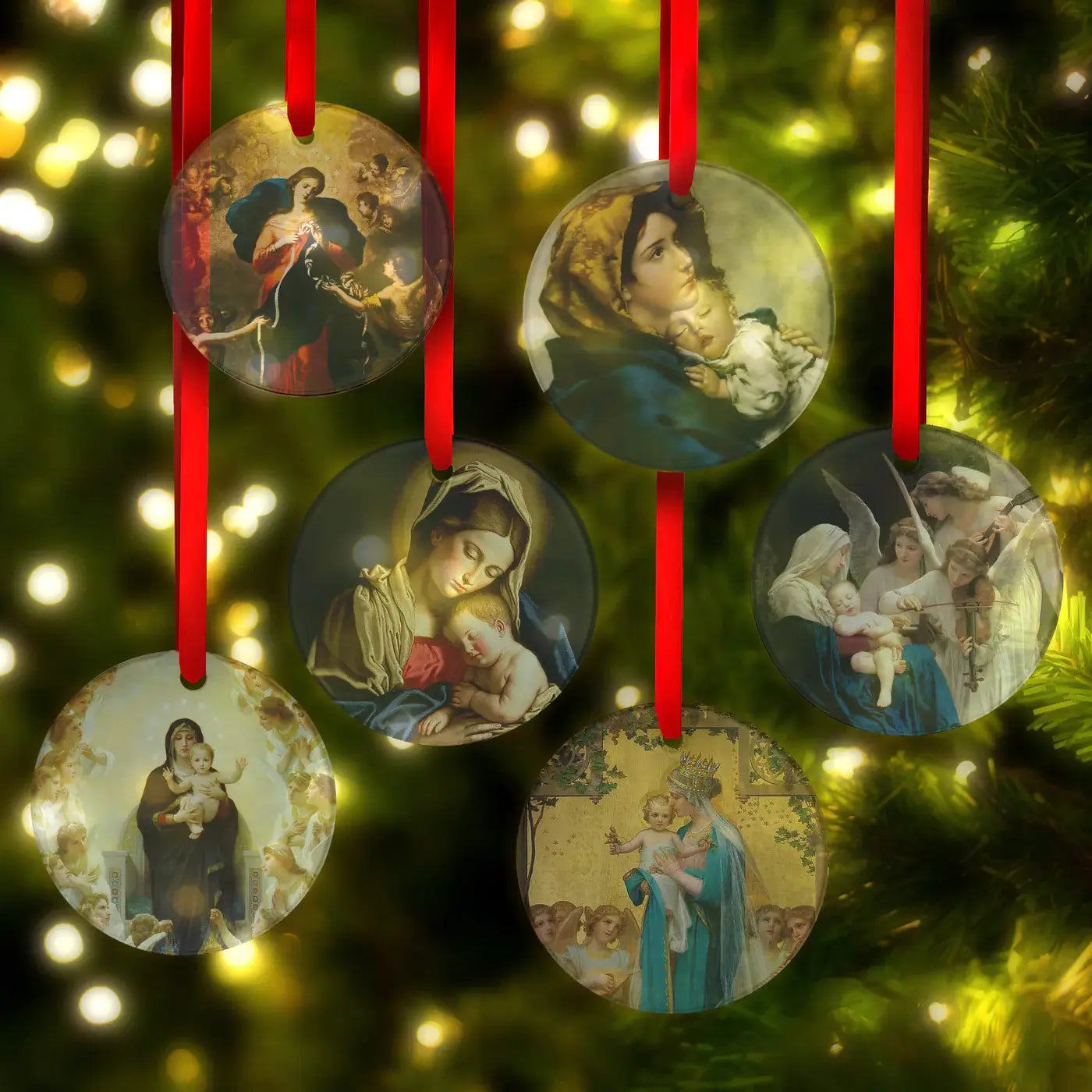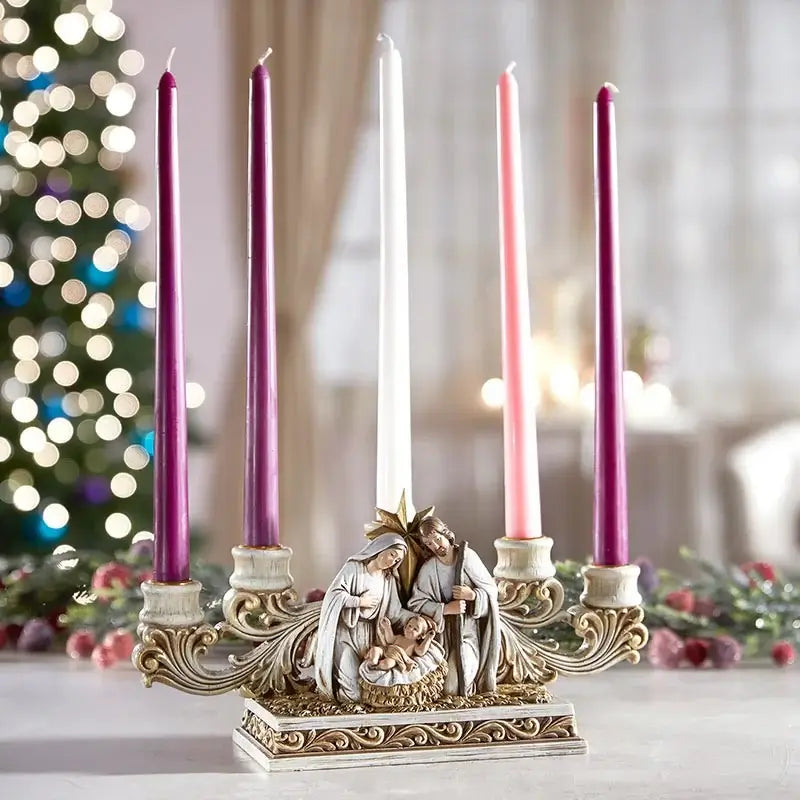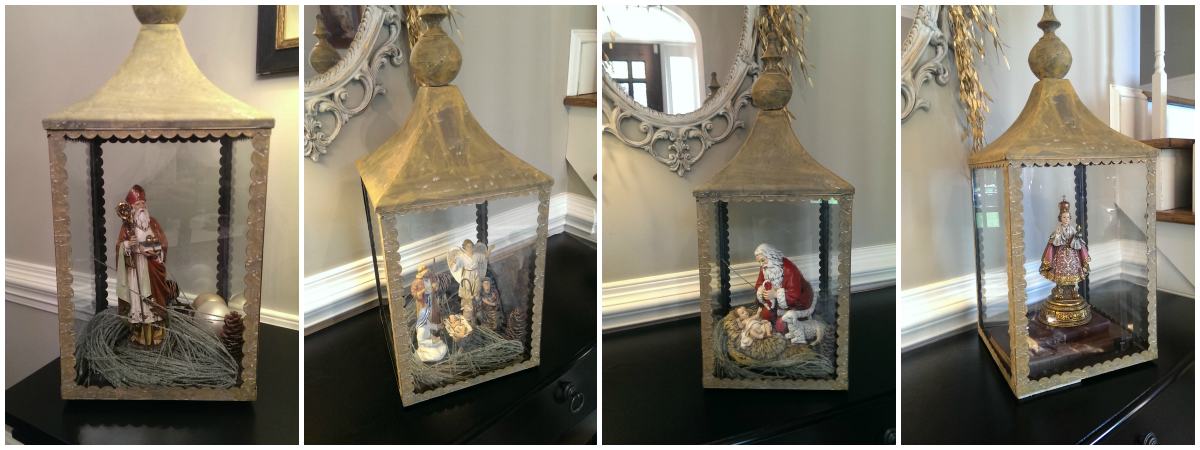As the Year of Mercy begins, here is your primer on everything you should know to fully celebrate this special event in the life of the Church.
WHAT IS THE YEAR OF MERCY?
Popes have the tradition of giving liturgical years a specific theme or emphasis. For example, we are currently in the Year of Consecrated Life (which will close on the World Day of Consecrated Life on February 2, 2016). You may remember the previous Year of Faith and Year of Priests. Pope Francis announced the next liturgical year to focus on the theme of Mercy. But the Year of Mercy is something exceptional; this one he declared to be a Jubilee!
WHAT IS A JUBILEE YEAR?
A "Holy Year" and "Jubilee" are synonymous terms. The concept goes back to the Old Testament when Moses declared every 50th year a jubilee, that is, a holy year to be observed by all of Israel which included the remission of debts, the liberation of slaves, and a rest from the cultivation of the land.For the Catholic Church, the first Jubilee was proclaimed by Pope Boniface VIII in 1300. It gradually increased in frequency from being celebrated every half century, to every 33 years, and then to every 25 years as the norm. A Jubilee is "ordinary" if it falls every 25 years, and "extraordinary" when it is proclaimed outside the usual time to commemorate some outstanding event.
After the Holy Year in 1975 under his predecessor, Pope St. John Paul II called for a Holy Year in 1983 (to commemorate the 1950th anniversary of the Year of Redemption, that is, the year 33 A.D. on which Jesus died on the Cross) and again in 2000. The Jubilee of the Year 2000 was the last one celebrated by the Church.
On the second anniversary of his pontificate, Pope Francis called for the next Holy Year (an "extraordinary" Jubilee as it comes before the next one anticipated in the year 2025), calling it a "Jubilee of Mercy." The Holy Year of Mercy commemorates the 50th anniversary of the closing of the Second Vatican Council. You can read the fascinating history of the Church's jubilees here.
A Jubilee Year is accompanied by special celebrations for the entire Church. The most notable of these includes the opening of the Holy Doors, pilgrimages to walk through the Holy Doors, and special indulgences granted to the faithful who participate in the Jubilee.
WHEN DOES THE YEAR OF MERCY BEGIN?
The Jubilee of Mercy begins on the feast of the Immaculate Conception, December 8th, 2015, and ends on the feast of Christ the King, November 20, 2016.
WHY MERCY?
Mercy has been a major theme for Pope Francis. In fact, the motto of his pontificate is Miserando atque eligendo, meaning 'lowly but chosen,' or more literally in Latin, 'by having mercy, by choosing him', or, 'by showing compassion and by choosing.' Pope Francis took this phrase from the Venerable Bede’s sermon on Matthew chapter 9, as it was on the Feast of St. Matthew that he first felt the call to the priesthood as a teenager.
Mercy was also a major theme in the pontificate of John Paul II, who Pope Francis recently canonized. It was Pope St. John Paul II who instituted the Feast of Divine Mercy on the octave day of Easter (called Divine Mercy Sunday) for the universal Church in 2000.
The Church's emphasis on mercy in recent decades can also be seen as prophetic; it highlights the fact in salvation history that we are currently living in the age of mercy and of grace, which comes before the Day of Judgment where all will face God's justice. This is experienced by each soul particularly at the time of death, and collectively when Jesus returns to Earth at the end of time. "Before the Day of Justice I am sending the Day of Mercy," Our Lord said to St. Faustina Kowalska as she recorded in her Diary, "Before I come as the just Judge, I am coming first as the King of Mercy."
WHAT IS MERCY?
In God, mercy is an attribute we often call "Divine Mercy." Divine Mercy is God's infinite and burning love for his creatures that provides for our needs and overcomes our miseries. As you can see in the image above, the red and white rays of Jesus' mercy flows to us from the furnace of his Sacred Heart. The most supreme act of God's mercy was the sending of Jesus to die for our sins. On the cross, when his heart was pierced, blood and water (red and white) flowed from it for the salvation of all mankind.In humans, mercy is "a virtue influencing one's will to have compassion for, and, if possible, to alleviate another's misfortune (Catholic Encyclopedia)" and is closely tied to the virtues of justice and charity.
Thus, we can understand that when we show mercy to others, we are also demonstrating or imitating God's mercy for us. In fact, we can be vessels of God's mercy, and this is exactly what Pope Francis has in mind by calling for the Church to focus on mercy in a special way this year: "It is my burning desire that, during this Jubilee, the Christian people may reflect on the corporal and spiritual works of mercy."
WHERE CAN I READ THE OFFICIAL DOCUMENT?
WHAT ARE THE HOLY DOORS?
Called a "Porta Sancta," a Holy Door is a special door in a major church (a basilica or a cathedral) that remains closed except during a Jubilee Year. Each of the Four Major Basilicas in Rome have three large doors, and the door on the right is the Porta Sancta.
Rome is the home of the whole Catholic world; it is the Holy City of all Christians. Burdened with their sins, but wishing to be cleansed, pilgrims from all countries approach the four Holy Doors. And behold! When, praying and singing, they walk through these Doors, they gain a plenary indulgence, they are purified." - Dom Albert Hammenstede, O.S.B.
The Church's primary Holy Door is in St. Peter's Basilica. At the close of each Jubilee, this Holy Door is sealed up, along with its key, in brick and mortar. It has remained sealed since 2001. This is the Holy Door that Pope Francis will open on December 8th to inaugurate the Jubilee just like his predecessors. Read more about the beautiful spiritual symbolism of Holy Doors here.
“On that day, says Pope Francis, "the Holy Door will become a Door of Mercy through which anyone who enters will experience the love of God who consoles, pardons, and instills hope.”
In the days and weeks following the opening of the Holy Door at St. Peter's, the Holy Doors will be opened at the other major Roman Basilicas and in dioceses across the world. Every bishop may designate a Holy Door in their own diocese to become a place of pilgrimage for the faithful.
The practice of pilgrimage has a special place in the Holy Year, because it represents the journey each of us makes in this life. Life itself is a pilgrimage, and the human being is a viator, a pilgrim travelling along the road, making his way to the desired destination. Similarly, to reach the Holy Door in Rome or in any other place in the world, everyone, each according to his or her ability, will have to make a pilgrimage. This will be a sign that mercy is also a goal to reach and requires dedication and sacrifice. May pilgrimage be an impetus to conversion: by crossing the threshold of the Holy Door, we will find the strength to embrace God’s mercy and dedicate ourselves to being merciful with others as the Father has been with us." -Misericordiae Vultus
WHAT ARE THE YEAR OF MERCY INDULGENCES?
Because the Holy Year of Mercy is a Jubilee, there will be an opportunity for special indulgences (the full or partial remission of the temporal punishment for sins of which the guilt has already been forgiven) which is summarized below and which you can read about in more detail here.
Make a Pilgrimage to a designated Holy Door:
"Make a brief pilgrimage to the Holy Door, open in every Cathedral or in the churches designated by the Diocesan Bishop, and in the four Papal Basilicas in Rome, as a sign of the deep desire for true conversion. Likewise, I dispose that the Indulgence may be obtained in the Shrines in which the Door of Mercy is open and in the churches which traditionally are identified as Jubilee Churches. It is important that this moment be linked, first and foremost, to the Sacrament of Reconciliation and to the celebration of the Holy Eucharist with a reflection on mercy. It will be necessary to accompany these celebrations with the profession of faith [Creed] and with prayer for me and for the intentions that I bear in my heart for the good of the Church and of the entire world."
For those unable to do the above (the sick, elderly, and home-bound):
"For them it will be of great help to live their sickness and suffering as an experience of closeness to the Lord who in the mystery of his Passion, death and Resurrection indicates the royal road which gives meaning to pain and loneliness. Living with faith and joyful hope this moment of trial, receiving communion or attending Holy Mass and community prayer, even through the various means of communication, will be for them the means of obtaining the Jubilee Indulgence."
For those in prison:
"The Jubilee Year has always constituted an opportunity for great amnesty, which is intended to include the many people who, despite deserving punishment, have become conscious of the injustice they worked and sincerely wish to re-enter society and make their honest contribution to it. May they all be touched in a tangible way by the mercy of the Father who wants to be close to those who have the greatest need of his forgiveness. They may obtain the Indulgence in the chapels of the prisons. May the gesture of directing their thought and prayer to the Father each time they cross the threshold of their cell signify for them their passage through the Holy Door, because the mercy of God is able to transform hearts, and is also able to transform bars into an experience of freedom."
For all Catholics:
"I have asked the Church in this Jubilee Year to rediscover the richness encompassed by the spiritual and corporal works of mercy. The experience of mercy, indeed, becomes visible in the witness of concrete signs as Jesus himself taught us. Each time that one of the faithful personally performs one or more of these actions, he or she shall surely obtain the Jubilee Indulgence. Hence the commitment to live by mercy so as to obtain the grace of complete and exhaustive forgiveness by the power of the love of the Father who excludes no one. The Jubilee Indulgence is thus full, the fruit of the very event which is to be celebrated and experienced with faith, hope and charity."
For the dead:
"Furthermore, the Jubilee Indulgence can also be obtained for the deceased. We are bound to them by the witness of faith and charity that they have left us. Thus, as we remember them in the Eucharistic celebration, thus we can, in the great mystery of the Communion of Saints, pray for them, that the merciful Face of the Father free them of every remnant of fault and strongly embrace them in the unending beatitude."
CORPORAL AND SPIRITUAL WORKS OF MERCY
Listed below is the traditional enumeration of the corporal (for the body) and spiritual (for the soul) works that our Holy Father wants us practice in an extraordinary way during this Extraordinary Year of Mercy.
Corporal works of mercy:
Feed the hungry;
Give drink to the thirsty;
Clothe the naked;
Harbor the harborless;
Visit the sick;
Ransom the captive;
Bury the dead.
The spiritual works of mercy:
Instruct the ignorant;
Counsel the doubtful;
Admonish sinners;
Bear wrongs patiently;
Forgive offenses willingly;
Comfort the afflicted;
Pray for the living and the dead.
GET STARTED
Take some time to pray and consider how you will celebrate this Extraordinary Jubilee in the life of Church. Don't let it pass by without taking advantage of the tremendous graces that are being held out to you from the treasures of the Mercy of God! Begin by thinking of those who need your mercy the most and start acting.
If you already have ideas on how you will participate in this Holy Year of Mercy, please share in the comments below.
Copyright © 2015 The Catholic Company. All rights reserved.























